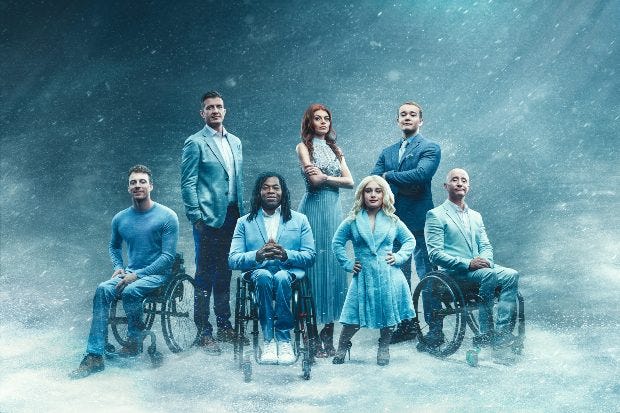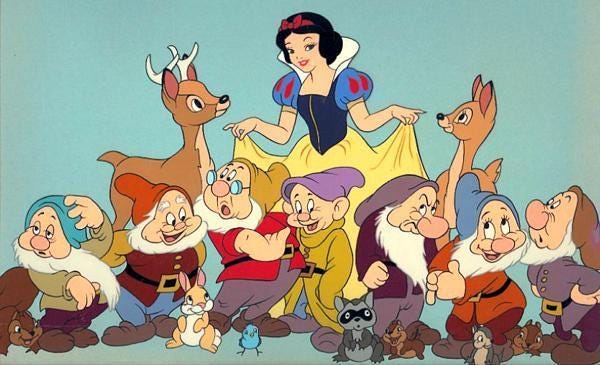Lights. Camera. Action.

I’m obsessed with Parenthood. The TV show, that is. I never watched it when it originally aired on NBC from 2010-15. Back then, our son was undergoing multiple spinal surgeries and managing infections. Those years were a tough time for all of us. And the last thing I wanted was to watch parents on TV struggling with disability. When I did find time for something other than caregiving, I think I opted for bubble baths. Or maybe just sleep.
But life is different now. While I still manage many aspects of Andrew’s care, I’m no longer his day-to-day caregiver. This frees me up to just be “Mom,” and provides distance and perspective that I didn’t have 7 years ago. I think that’s important in order for me to watch a show like Parenthood, which would have been “too close” before. It’s raw and powerful and depicts lots of things that our family has experienced in some form or fashion. I think I needed space before I could truly appreciate it.
Created by Jason Katims, of Friday Night Lights fame (Go Panthers!), Parenthood has been praised for its sincerity, optimism and realistic storylines. This includes two main characters who are parents of a young boy with autism. Raising someone with autism figures prominently in nearly every episode, and much of the story line is based on experiences from Katims’ personal life as the father of a son on the spectrum.
I don’t know how much this show gets “right” or “wrong,” since I’m not an expert on Asperger’s or parenthood. What I do believe, however, is that families who live with disabilities can benefit from seeing themselves represented in TV and movies. It just feels good to see our “normal” on the big screen, especially when the real world can sometimes make us feel very “abnormal.” When a show depicts the challenges of raising someone who struggles with a disability and brings joy, I want it to be celebrated. But I also want the actors to be authentic. Hollywood is starting to agree.
While the actor who played Max in Parenthood is neurotypical, Katims’ newest dra-medy on Amazon (As We See It) stars three actors on the spectrum playing characters on the spectrum. (I loved it!) They follow in the foot steps (or tire treads) of Micah Fowler in Speechless, one of my all-time favorite TV shows:
Casting actors with disabilities to portray characters with disabilities matters, I think. And seeing characters with disabilities who are integral to the storyline is also really important. Here’s what the Ruderman Family Foundation has to say on the subject:
The entertainment industry must embrace disability as a key facet of diversity and can help normalize disability, erasing the stigma that surrounds it…Research shows that 95 percent of top show characters with disabilities on TV are played by actors without disabilities. We call on the entertainment industry to increase opportunities for performers with disabilities… From greater accessibility and opportunity, talented and high-profile actors with disabilities will emerge.
Does seeing people “like them” in movies and television help young people with disabilities feel connected and included? Can we use programs like those mentioned here to help teach young people with disabilities and enhance their development? What do you think?
Let the games begin.
For the first time ever in the world, a major sports broadcaster’s entire on-air talent team has disabilities. In its coverage of the 2022 Winter Paralympic Games, the UK’s Channel 4 has proudly assembled a team in which every presenter and pundit is disabled and highly accomplished in the world of athletics. Said a spokesperson for the International Paralympic Committee, “There are over 15% of persons in Great Britain with a disability, and they should be able to switch on a TV and see wonderfully ordinary persons with disabilities like them in front of the camera. This is change starting with sports.”

The battles that count aren’t the ones for gold medals. The struggles within yourself -- the invisible battles inside all of us -- that’s where it’s at.
-- Jesse Owens
High ho – high ho.
Now in its third year of re-envisioning the classic tale of Snow White, Disney is said to be taking a different approach with regards to disability. After consulting with members of the dwarfism community, the company said it is “reimagining” the dwarf characters to avoid reinforcing negative stereotypes. We’ve come a long way since this original film was released in 1937, but progress is definitely not easy. Let’s hope Disney gets it right this time and helps move the conversation forward, not backward. Read more here.

Interested in learning more about working with Kris?
Contact us for information on what this might look like for you, including outcomes, availability, fees and more.
Stay connected with news and updates!
Sign up below to receive our newsletter and updates.
We hate SPAM. We will never sell your information, for any reason.


